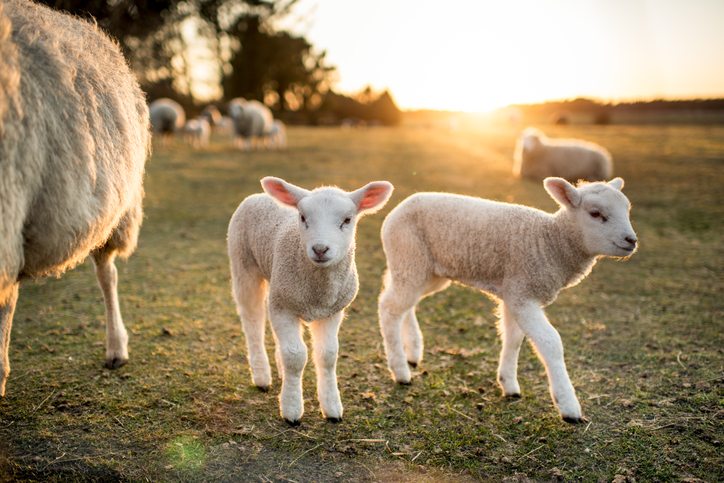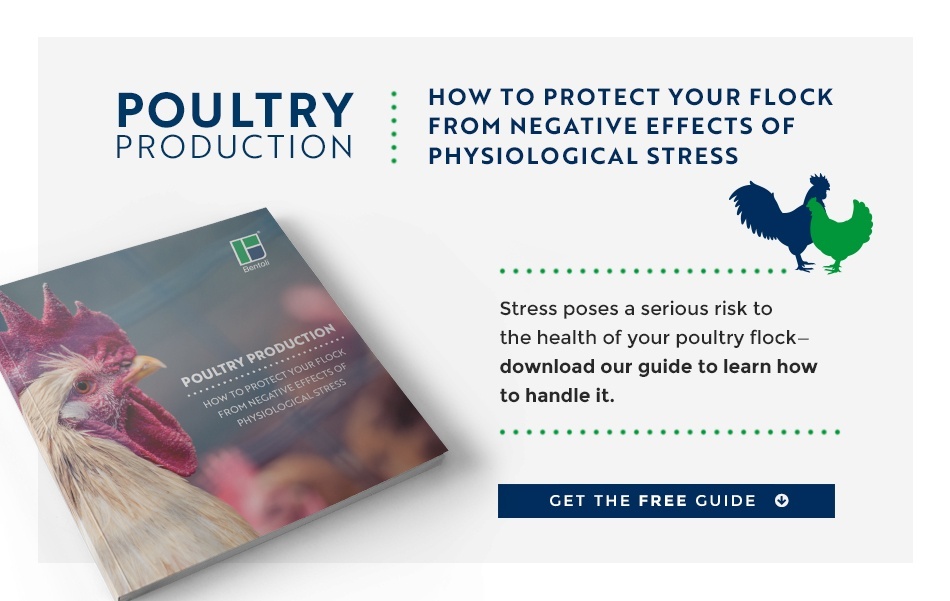What Would Happen If Animals Arent Fed Properly

Providing essential nutrition for young animals is the primal to raising productive, healthy livestock. Young animals are more vulnerable than adult members of their species because their immune systems and tolerances are however developing. This means the risk of contracting infections, sickness, and affliction is much college in early stages of life.
Juvenile animals that do not have admission to essential nutrients frequently experience stunted growth and are more susceptible to sickness, illness, and in extreme cases, death.
1. Supporting Healthy, Early on Development
Adolescent animals must have access to a healthy nutrition that contains minerals, vitamins, and other essential nutrients which support vital body functions and growth. The amount of nutrients required for developing animals varies according to their species, historic period, living conditions, and access to nutritional feed options.
Water, protein, and calcium are needed for all young animals to survive, but some species have specific requirements that contribute to optimal health.
Ruminants:
Immature ruminants tin can usually satisfy most of their dietary needs by foraging for nutrient-rich vegetation. Yet, many pastures are unsuitable for forage or do not incorporate large enough quantities of edible plants to provide the nutrients required for healthy development. That ways calves, lambs, kids, and other young ruminants volition often crave supplemental sources of diet to maintain their well-being and support growth.
Newborn calves must exist fed colostrum from their dam immediately after birth considering it carries immunoglobulins that are absorbed by the gut to help the immune organisation resist disease. This passive transfer of amnesty has proven to improve growth rates and decrease health costs associated with calves.
Poultry:
Ducklings, goslings, chicks, and other immature poultry must have access to a generous supply of amino acids, vitamins, minerals, and antioxidants that contribute to healthy energy metabolism and other necessary functions.
A variety of physiological and morphological changes occur in young poultry immediately after hatching that affects their power to digest food . Chief among these changes is the maturation of the enterocyte, so that information technology may begin secreting enzyme precursors for digestion. During the post-hatch stage of life, food transporters in immature poultry are controlled past the level of poly peptide they receive in their nutrition, as well as the quality and limerick of feed.
Swine:
Newborn piglets rely on careful management to survive because they are born without antibody protection . Their bodies cannot regulate internal temperatures, and they simply have enough fat energy for one twenty-four hour period. Much similar ruminants, piglets must be given colostrum immediately after nascency in guild to strengthen their immune systems. In addition, the use of brusk and medium concatenation fatty acids stimulate the gut health of suckling piglets, achieving eubiosis. The nutritional requirements for pigs differ according to their various developmental stages where essential minerals, vitamins and amino acids are advisedly added to support optimum performance.
Equines:
Foals demand a well-counterbalanced intake of nutrients to develop properly and prevent disease or sickness from setting in. The commencement year of a foal's life is especially important to their musculoskeletal wellness. Nursing foals receive virtually of their nutrients from the female parent's milk, where poly peptide, calcium, phosphorus, and more are provided.
Newborn foals need to be fed colostrum to receive a loftier concentration of nutrients and antibodies from the dam. In improver to improving affliction resistance , colostrum helps foals to pass fecal excrement, which would otherwise cause constipation.
two. Solving Common Health Problems
Young animals are more than susceptible to health issues and have greater difficulty recovering from disease. Providing ample sources of diet improves their gut health, growth rates, and trunk functions, making information technology easier for them to resist and recover from health problems.
Four Common Health Problems Experienced past Young Animals
- Infection – A strong immune system is the best style to help young animals fight off infections.
- Illness and sickness – While many young animals are typically vaccinated for a range of common diseases, at that place is ever a chance they will contract sickness from interacting with pathogens or parasites in their environment.
- Aridity and heat stress – Young animals oft feel aridity, sometimes due to nursing problems or lack of admission to drinking water. In addition, estrus stress usually occurs during the summer months because many young livestock have not nonetheless developed fully enough to regulate their body temperature.
- Failure of passive transfer – This occurs when antibodies are not transferred during pregnancy or feeding from the dam to the newborn offspring. This problem is oft caused past dams that produced little or no colostrum, leaked colostrum prior to giving nascence, or produced no milk. Failure of passive transfer places young animals at a very high risk of contracting disease.
These common health problems can all be avoided or corrected with diets that provide required nutrients in make clean, favorable environments.
Using Supplements and Additives to Boost Nutrition for Young Animals
Overcoming these mutual bug can exist solved past supplementing diets with nutritional additives or altering diets. Information technology is important to evaluate each instance individually to determine whether dietary supplements are required. In many instances, breeding practices, seasonal changes, or feeding patterns (such as foraging or consuming pelleted feed) tin can assistance determine which supplements are needed. If immature animals are struggling to consume proper amounts of nutrition, they may require a modify in nutrition or added nutritional supplements.
Animal supplements should never be used in lieu of an adequate nutrition —simply in conjunction with a nutritious diet. Livestock that are experiencing low energy due to a poor nutrition plan with limited access to fresh feed should be given feed supplements to maintain their health.
Raising productive, healthy livestock starts by providing young animals with complete nutrition that gives them the best opportunity to grow, mature, and resist common health problems.

Source: https://www.bentoli.com/nutrition-for-young-animals/
Posted by: denneysoperypear.blogspot.com

0 Response to "What Would Happen If Animals Arent Fed Properly"
Post a Comment